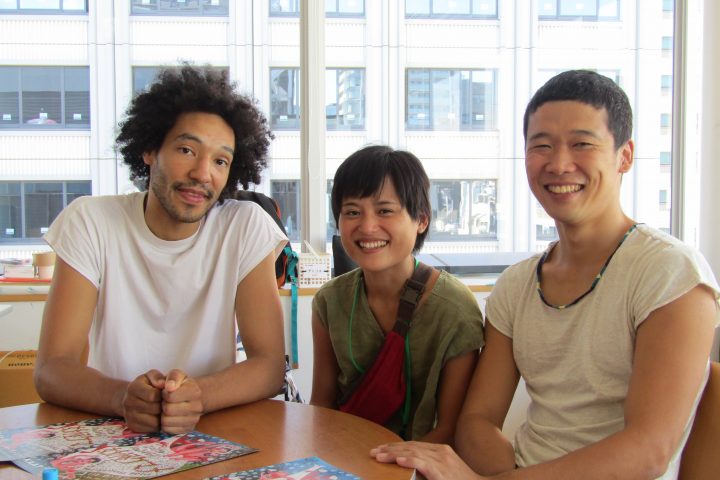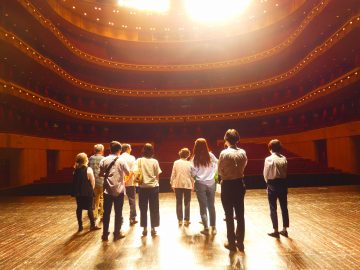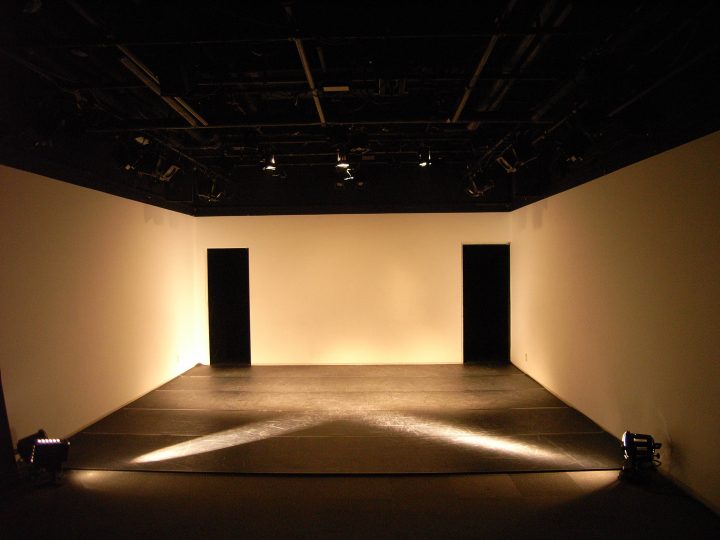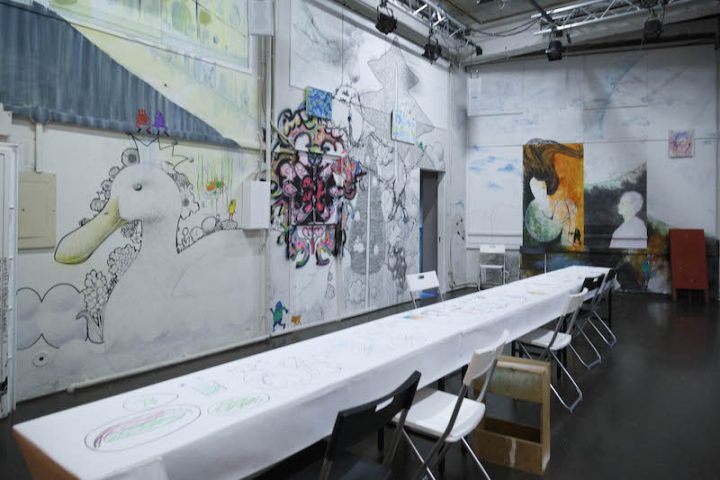"Coming from the Dark" Interview with Tomohiro Maekawa and Eriko Ogawa
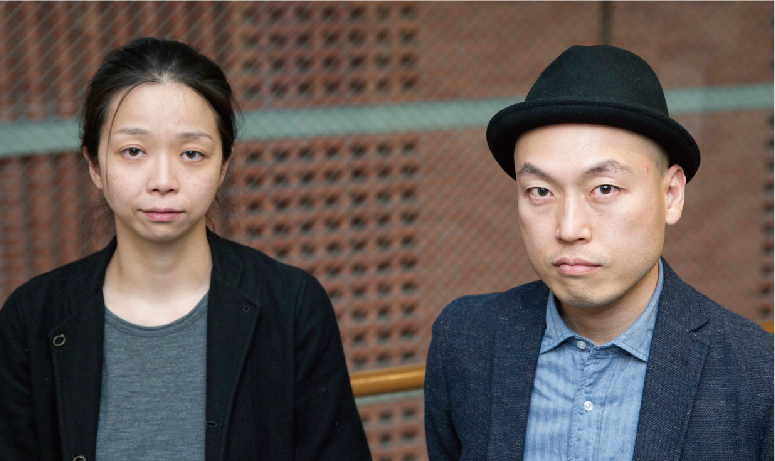
Playwright and director Tomohiro Maekawa and director Eriko Ogawa have won many theater awards and are the hopes of Japanese contemporary theater. In the summer of 2012, after Ogawa directed the Ikiume production "Mission," the two teamed up again to produce "Coming from the Dark," a play for children and adults.
This work, born from a well-coordinated combination between the actors and staff, has literally thrilled audiences of all ages, and this summer, it will be performed again for the first time in two years, touring eight theaters around Japan. We spoke to the two about their first experience of "making a play for children," and their thoughts on the upcoming re-run.
Text by : Sora Onoe
Photo: Masanobu Nishino
■Tomohiro Maekawa|tomohiro MAEKAWA
Born in 1974. Playwright and director.
Born in Niigata Prefecture, he presides over the theater company Ikiume (established in 2003) and uses it as his base of operations.
It depicts a different world that appears alongside everyday life.
Outside of the company, he continues to take on a wide range of challenges, such as teaming up with Ichikawa Ennosuke in Super Kabuki II's "The One Who Carves the Sky" and with Ninagawa Yukio in "Taiyo 2068." In 2014, he won the 21st Yomiuri Theater Award for Outstanding Director for his direction of "Hanrin" and "Kitashita no Teki." He has also received many other theater awards, including the Tsuruya Nanboku Drama Award, Kinokuniya Theater Award, Yomiuri Literature Prize, and Art Encouragement Prize for New Artists.
http://www.ikiume.jp/index.html
■Eriko Ogawa|eriko OGAWA
Translator and director. Born in Tokyo in 1978.
Graduated from the Actors Studio Graduate School Directing Department in 2004. Trainee at the Lincoln Center Directing Institute from 2004 to 2005.
From 2006 to 2007, he was a trainee under the 2005 Cultural Budding Artists Overseas Dispatch Program.
In 2010, he won the Odashima Yushi Translated Drama Award for "The Late Henry Moss" (CAT Production/J. Clip) by Sam Shepard. In 2012, he won the 19th Yomiuri Theater Award Sugimura Haruko Prize for "12 People: A Miracle Story" (Office Cottone), "Visitors of the Night" (Hibikijin), and "Pride" (tpt). In 2014, he won the 48th Kinokuniya Theater Award Individual Award, the 16th Senda Koreya Award, and the 21st Yomiuri Theater Award Outstanding Director Award. He is one of the most notable directors today.
Maekawa: It was my first time to create a play for children, but I didn't do any different preparations than usual or change my ideas drastically. As I said at the premiere production announcement, I remember many experiences from my childhood where I thought, "Things that I don't understand a little bit are the ones that stay in my memory for a long time," so I thought that it would be better for the audience to concentrate if I didn't try to be too helpful and handy. However, I was aware that my style of writing is a little too argumentative (laughs), so I did try to keep the story development as simple as possible, and take less time than usual to develop the plot after laying the groundwork.
Ogawa: I wasn't particularly nervous either. If anything, I had high expectations that I would be able to have fun using direct direction and gimmick-like devices that I normally wouldn't be able to use in a theatrical production.
Maekawa: When I write a play, I usually ask the actors and staff for their opinions to help refine the story, but I wrote this play almost in one go without consulting anyone. I also reflected a lot of my own childhood experiences in the main character, Teruo, and when I screened the footage of the play in my hometown of Kashiwazaki, Niigata Prefecture in January of this year, I was nervous about what my mother and sister might say about it (laughs).

Photo: Aki Tanaka (from the premiere at KAAT Kanagawa Arts Theatre in 2012)
Ogawa: I just found out that Maekawa's real-life experiences were so deeply reflected in the story (laughs).
Maekawa: I don't usually incorporate personal experiences into my work. But I think that by adding my own experiences, the work has become something that is not affected by age, whether it's a child or an adult. The reason Teruo feels vague anxiety and fear towards his grandmother's house is because of the "guilt" he feels. The guilt lurking in his subconscious makes him feel things that other people don't, and things that should be invisible appear in different forms and he is frightened by them, which is a common theme in horror films.
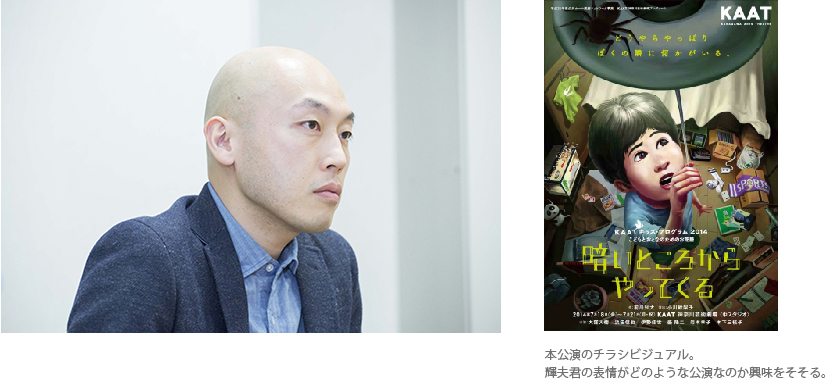
Ogawa: That's true. Because it was such a standard play, the actors, staff, and of course Maekawa-san came to the rehearsal hall many times, and we were able to create it by sharing various ideas. For me, that was a very stimulating and enjoyable time. The staff at KAAT were always working at full capacity, dealing with even the smallest details, and they were really kind to me.
We felt that we had made something interesting, but in the final stages, we started to worry, "Will the children enjoy it?" Since it was our first time, we didn't know how they would react. So, just before the opening day, we decided to have over 20 parent-child pairs watch it as a preview. We asked the staff to do something difficult, but their reaction really saved us.
Maekawa: That's right, they laughed a lot more than I expected, and they watched closely when it was time to concentrate.
Ogawa: He quickly understood the rule that "only Teruo can see the people in the dark world," and even found Teruo's slightest flinches amusing. But when I asked him for his impressions after the show, he gave me some sharp criticism, saying, "The shadows projected by the projector are out of place!", and I had to quickly fix it (laughs).
Maekawa: I was impressed and relieved to see that they were watching so closely.
Ogawa: Even during the performance, it was clear to see that the children were creating the atmosphere in the theater. They laughed and got scared before the adults, and sometimes even said out loud, "It's not scary!" The adults were drawn into the world of the play by the children's honest expressions of emotion. I was keenly aware that the presence of the children made this production possible.
Maekawa: I think it was a good idea to have seats facing each other around the stage. There were children in the front row in particular, and the audience facing them could see their reactions as part of the performance. So I think the children's direct reactions had a strong impact on the performance.

Photo: Aki Tanaka (from the premiere at KAAT Kanagawa Arts Theatre in 2012)
Ogawa: Also, personally, I would say that this production allowed me to use some nostalgic theatrical devices that I would not normally be able to use even if I wanted to. I was able to try out various things, such as using the contrast of light and shadow to express the presence of something invisible, and using simple and straightforward techniques such as wind that sways curtains, with careful calculation. This was possible thanks to the cooperation of the art, lighting, and sound teams, but the personal benefit was that I was reminded that "theater can be created in a straightforward and enjoyable way like this." As a result, my family, who usually complain about the plays I direct, saying that they are "long and dark," even said that "there is no production that surpasses this" (laughs).
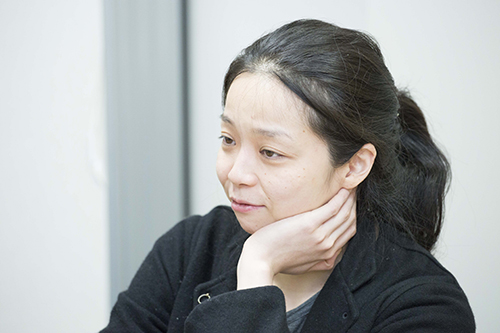
Maekawa: When I first went to the rehearsal studio, Ogawa-san's direction was so meticulous as always, and I was honestly taken aback, thinking, "He's not even thinking about this being for children..." (laughs), but it was right that he created the play in a way that didn't pander to children.
That's why I think the audience, children who are the most honest and critical of all, became our allies. On this tour, we will be taking the production to various regions, including Chubu, Kansai, and Kyushu, and I hope that in each theater, there will always be children present to watch the production.
Ogawa: The presence of children really is a must for this work.
For a better and more enjoyable experience, we would encourage adults to come along with their children.
Maekawa: The cast and staff for the re-run will all be the same. This is why we aim for an evolution and deepening of the show, so I'm sure that even those who saw the original will find something different to enjoy.
